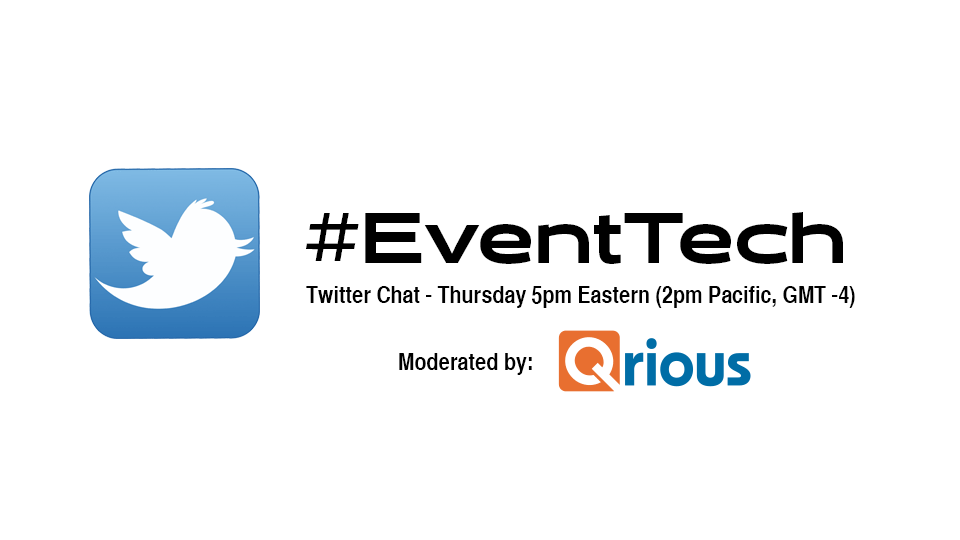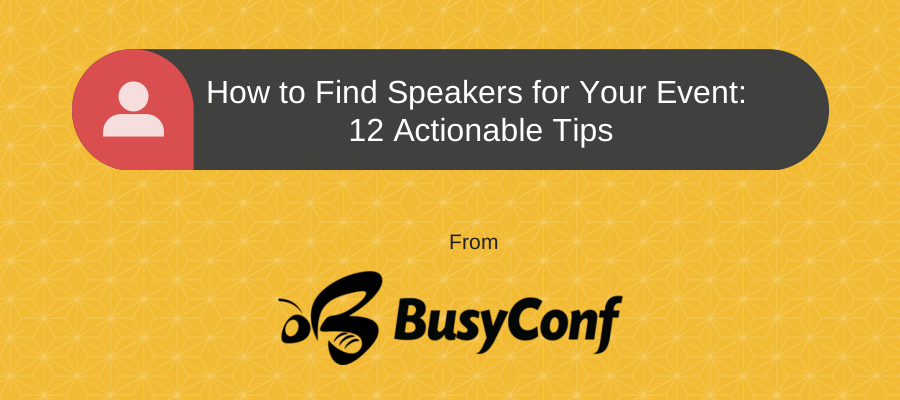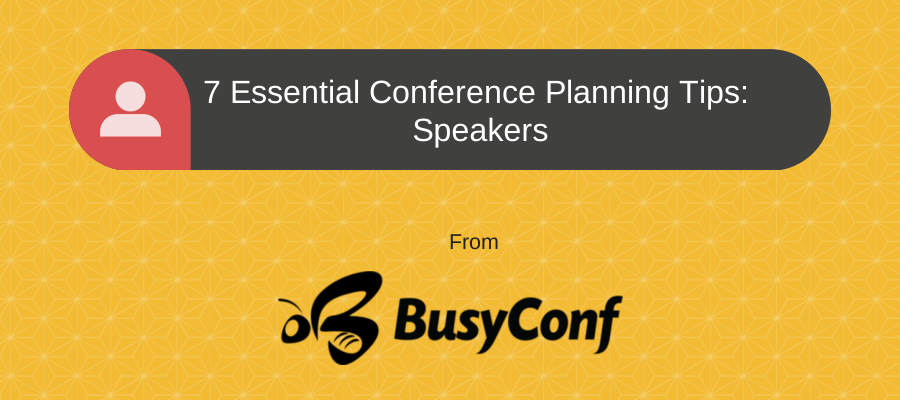Previous page

For someone who has never planned a conference, it might seem like a pretty easy task – book a venue, invite the guests, make sure there’s entertainment, food and you’re all good, right?
Well, as soon as you start to actually taking steps to organizing the event, you will probably see just how many hurdles need to be overcome in order for the event to go smoothly – for someone without the necessary experience it might even turn out to be a task too difficult to accomplish.
But even those who plan events for a living often find themselves making mistakes that can even ruin the entire conference. Some of these mistakes might not even seem that bad, but when they do occur they can even ruin the event. So here are some of the often overlooked mistakes that should be avoided:
1. Not Enough Space
It’s no secret just how competitive the event planning industry is, and so event planners try to squeeze as much out of every dollar in their budget as possible, which sometimes means they’ll try to cram the event into a venue that is not sufficient in space.
This, of course, leads to a lot of problems – when big crowds of people gather to one place, every detail must be planned for the event to remain orderly and organized. And when there’s not sufficient space for fitting the audience comfortably, feeding, registering and seating them, then you can be certain that you’re setting yourself up for disastrous outcomes.
Make sure there’s plenty of space for everyone – the venue is usually the cornerstone of the entire event, so it’s wise to plan a little extra space, just in case.
2. Poor Communication with Client
It’s a constant striving for the optimum balance when consulting with your client about the event – on one hand, it’s his event so you need to make sure you plan it to his preferences, but on the other hand you are the professional and you hold the responsibility for the events’ success, so you must sometimes take a stand where you think that the clients’ vision is not in the best interests of the event.
A good idea is to maintain constant contact and discuss the options before making any final decisions – this way compromises can be found and the event will both represent the clients’ wants and be successful.
3. No Wi-Fi
Now this might seem like not that big a deal, but in todays’ world that is so reliant on the web, not having internet available for all the guests can have a very negative impact. And especially for a business event, it’s crucial to have Wi-Fi – whether it’s for video presentations, communications or one of many other reasons.
Also, most people nowadays have phones on which they also like to surf the web, Tweet about the event or share pictures through social media. All of these activities can play a significant role in the perceived success of the event, so for the sake of your reputation as an event planner, take the little time needed to ensure that the venue has a proper internet connection.
4. Not Giving Credit to Others
Just as in any profession, you will most likely not be doing everything yourself – there’s just so much that comes into event planning, all the way from finding new clients to the finishing touches on the event itself, that there’s probably always plenty of people that deserve a proper thank you for their help.
Do not forget the people that play a role in your success – even a simple call or card thanking them for the assistance can go a long way to establishing a lasting relationship which can reap you benefits for years.
All the suppliers, event staff, advertisers and anyone else who contributed deserve appreciation – remember, they are all also professionals in their field, so if you have a chance, help them out as well. A strong net of mutually beneficial relationships can help you stand out from your competition in the event planning market,which can ultimately be the deciding factor for the growth and success of your event planning business.

The day after I stopped working for BusyConf last summer, I was on the road to college. Since then, something has been missing. Even if I didn’t make any entrepreneurial decisions at BusyConf, I missed the ambitious, competitive, high-tech atmosphere. At school, I had to create my own passion for success, and keep up my programming skills with daily practice. In contrast, that was a given by just arriving at work before. At BusyConf, I was given the opportunity to challenge myself and improve myself with useful technology skills, but at school, I was graded on my ability to regurgitate words from my textbooks.
Although I allowed for some of the programming skills I learned at BusyConf to slide, many of them made my life at school easier. The skills I gained with the Mac, and software suggestions from Ryan (such as Evernote), allowed me to power through my classes easily. Advantageously, I have archived notes from all of my classes. My programming classes were somewhat boring at times, but towards the end of my second semester, I saw a chance to effectively use GitHub on a final project. My roommate (Richard) and I built a visual binary search tree program in Java. Ryan indirectly taught me about formatting a GitHub page, and working in a team last summer. If Ryan had not shown me how to use GitHub last summer, I would not have been able to build a project nearly as complex. The project was such a success that our professor, Dr. Siochi, asked if he could use it next year to teach students about binary search trees.
College hasn’t been all that bad, but I think it was the absence of BusyConf from my week that made it seem mundane. This summer I am looking forward to working on more inherently interesting projects for BusyConf. I think I will accomplish more in the next 3 months than the last 9. My goal for this summer is to understand web development enough that I can start building websites. My new found confidence with the command line, general knowledge of Ruby, a little bit more web know-how, and of course working at BusyConf, will all help me to achieve my goal.

Planning a conference is hard. There’s no doubt about it.
Being a part of BusyConf and helping conference organizers take their event from idea to launch has shown me that this is true. One of the difficult parts of planning a conference is finding resources to help you organize your event that are affordable, or even free. To save you time when searching for resources, we have compiled a list of conference planning resources that can help you find a venue, book speakers, promote your event, and more.
Finding a Venue
Finding and booking a venue can be a stressful experience, especially for first-time conference organizers. Renting a venue is often the biggest cost involved when planning a conference. These tools make finding and booking venues in your area simpler and cheaper.
- Meetings.com - A venue search engine where most venues are hotels, convention centers, and other large venues for professional meetings.
- EventUp - Unlike Meetings.com, EventUp consists of venues ranging from hotels to private residences and small businesses.
- VenueSpot - VenueSpot is a venue directory that lets event organizers submit requests based on the number of attendees they expect, venue type, and other attributes. Local venues can then send you offers based on your event details.
- #tagvenue - The UK’s fastest growing venue search engine.
- Local college venues
Booking Speakers
Speakers can make or break your event. Finding speakers starts with your own network, but these tools help you find speakers on any topic and in any location. Read our other blog post on finding speakers for a more in-depth guide.
- National Speakers Association Directory - Find professional speakers who are members of the National Speakers Association or it’s local chapters.
- SpeakerMatch - A search engine for event speakers. Find speakers based on area of expertise, budget, and location. You can also post speaker jobs.
- Leading Authorities Speaker List - A directory of keynote speakers for specific topics.
- Lanyrd Speaker Directory - A directory of speakers, both professionals and hobbyists, who have spoken at conferences in the past. You can even view information about talks they delivered at other conferences.
- WikiCFP - An open directory of open conference call for papers. Submit your conference’s CFP to people interested in speaking.
- eSpeakers - A marketplace for professional speakers. Submit jobs or browse speakers to find the right one.
Promoting your event can be difficult, especially on a budget. These directories and search engines are used by potential attendees to find events worth attending. Submit your event for exposure and free promotion.
- Lanyrd - A social conference directory. Submit your conference for people to find.
- AllConferences - A comprehensive directory of conferences spanning many topics and locations.
- BusyConf Booster - A service we offer that helps conferences increase attendance through targeted marketing. Marketing can be a major challenge for conference organizers. The BusyConf Booster package can help eliminate your fears of empty seats and save you time and money when trying to promote your event.
- Confevent - Another conference directory that offers advertising spots to conferences.
- 10Times Conference Directory - A conference search engine for finding conferences based on industry and location.
- Conference Hound - A tool for finding the best conferences and conference speakers.
- Nature Events Directory - A directory of science and nature events.
- Conference Alerts - An open database of conferences.
- Bvents - A large database of business events, venues, and organizers.
Events are expensive, and without enough sponsorship money and a thorough budget, your plans might just fail due to a lack of funds. Finding sponsors is something that a lot of first time organizers struggle with. These resources will help you raise money for your event, find sponsors, and create a budget.
Social media should be a big part of your event marketing and event engagement strategy. These tools help you use social media to engage attendees, find influencers, and make your event more memorable.
- TintUp - A tool for creating Twitter walls and social feeds.
- Tweet-tag - Monitor your conference’s hashtag in real-time and find influencers.
- Tweetbe.at ListManager - An easy way to create and manage Twitter lists. Create lists of attendees, speakers, and organizers.
- Canva - A super simple tool for creating good looking graphics without being a professional designer.
- Storify - Create social media stories from posts on Twitter, Instagram, and other social networks.
- Eventifier - Archive event media from social media posts.
Beginners and seasoned event planners alike can always benefit from more information, especially as it pertains to social media for event promotion. Learn the tricks-of-the-trade so that you are ahead of the fray as you plan that next event or conference for your company or client. Let this Complete Guide to Social Media Promotion for Events be your bible as you seek to generate interest and hype using the latest tools available on the most popular social network channels.
Event Equipment
Equipment rentals are almost as stressful as finding a venue. Renting equipment is often expensive and time consuming. If your event needs complex audio and visual equipment, renting and setting it up can be difficult. these services help event organizers find and set up equipment.
- Restin Chairs - Rent lounge equipment for your event, including branded experiences like mobile charging stations and social media centers.
- LBI A/V - Experienced in building audio/visual solutions for events and conferences.
- Alliant Events - Rent audio, visual, and lighting equipment for your event.

I was fortunate enough to have the guys from
Qrious, John Federico
(@gadgetboy) and John Wall
(@johnjwall),
interview me yesterday
during their live #EventTech Chat. We talked about
BusyConf’s past, present, and future!
Here’s the transcript…

Last week was tricky for any web service that used a version of the OpenSSL
library vulnerable to CVE-2014-0160. The Heartbleed
SSL vulnerability shocked the world and was probably the Internet’s worst
wide-spread security flaw to date.
BusyConf’s Response to Heartbleed
BusyConf was using a version of OpenSSL that was vulnerable to Heartbleed at
the time of the announcement. The affected systems at BusyConf were protected
immediately with mitigation steps and later patched with new SSL keys and
certificates deployed as soon as it was safe to do so.
- April 7, 2014 10:24 UTC: BusyConf learned of Heartbleed vulnerability
affecting all OpenSSL v1.0.1a-f installations.
- April 8, 2014 01:31 UTC: Our hosting provider (Heroku/AWS) recognized
and started to implement mitigation steps to recognize and block the exploit
vector exposed by Heartbleed. This helped prevent attacks until further
security measures could take place.
- April 8, 2014 11:30 UTC: BusyConf requested re-issuance of our SSL
certificate. SSL Certificate authorities were overwhelmed with requests and
set expectations for delays.
- April 8, 2014 14:20 UTC: All of our hosting provider’s SSL endpoints
were fully patched to protect against the exploit.
- April 9, 2014 12:12 UTC: BusyConf received our new SSL certificate from
the certificate authority.
- April 9, 2014 13:45 UTC: BusyConf deployed our new SSL key and
certificate to all servers closing all known vulnerabilities originally
exposed by Heartbleed.
When each of our third party service providers announced that they also
patched the vulnerabiliity, just to be safe, BusyConf also changed all
relevant passwords and rolled all relevant API keys with each service
provider.
What You Should Do as an Event Organizer
While we have no evidence that the exploit affected any of our customer’s
data, to be safe, we recommend that customers update passwords with all secure
services that they use, including BusyConf. We recommend that everyone change
their BusyConf management passwords.
What You Should Do as a Conference Attendee
Because attendees do not store passwords with BusyConf, no action is necessary
for any attendees of conferences that use BusyConf to help manage their
events.
It’s worth noting that sensitive credit card information is never passed to
BusyConf’s servers. All sensitive data is passed directly to our payment
processor. This helps us ensure the highest levels of the Payment Card Industry Data Security Standard to keep
your information as safe as possible.
We use several third party services to help manage the BusyConf platform. They
all have also made official Heartbleed announcements:

Planning your event can be stressful. Coordinating the budget, finding the venue and hiring an expert speaker are all important in the planning process.
If you are planning a conference soon, you may need to find guest speakers. Here are some resources to help you find the perfect speaker for your next event.
There is no shortage of professionals on this site, which is one of the most popular social networking sites online. Review profiles, participate in groups and read the content of your contacts to identify potential speakers for your next upcoming event. These professionals are often more than willing to consider speaking engagements.
This organization trains professional speakers and can connect you with professionals who specialize in public speaking. Booking a speaker can be done through their published directory. There are also local chapters of the National Speakers Association.
This site allows you to post a request for a speaker at your upcoming event. The site has thousands of speakers with completed profiles online for you to reach out to for your next event.
4. Look for certified speakers from leading organizations.
Organizations like Toastmasters, Certified Speakers Organizations and similar groups provide advanced certification training to their members. Consider learning more about local chapters in your area and look for available speakers.
5. Issue a call for proposals.
A call for proposals, also known as a call for abstracts, gives potential speakers the chance to directly submit their ideas for talks. This gives you a large pool of qualified speakers interested in speaking at your event. You can then assemble a review panel to review the proposals that are submitted.
Our tool, BusyConf allows organizers to set up a call for proposals and start receiving speaker proposals in less than 15 minutes.
Once speaker proposals are in, you can start rating and reviewing them to choose the best.

6. Reach out to your local Chamber of Commerce.
Business owners join these organizations to increase visibility for their brand or business in their area. The chamber may be another resources worth tapping into for your event.
7. Check niche professional organizations.
Regardless of the industry you are in, any professionals join industry organizations to build on their expertise. Members ofthese organizations often join these groups to take their careers to new heights, and are always looking for new opportunities, such as speaking at your event. Connect with these organizations to find knowledgable speakers.
These organizations sometimes use LinkedIn Groups to organize.
8. Use industry publications, both online and offline.
Guest bloggers are often looking for opportunities to expand their web presence and establish a reputation as an expert in a field. These guest bloggers showcase their expertise in their work. Sending an inquiry letter to a contributor may be an opportunity for you to connect with a speaker.
Use BuzzSumo to find influential publications in your industry and reach out to them.
9. Participate in online forums.
Forums are online communities designed to help people get information. In participating in these forums, you not only get the chance to learn and have questions answered, you also get more an opportunity to identify a potential speaker for your upcoming event.
Use Forum Finder to find forums in your industry to participate in.
10. Check your local university.
These institutions are often the first point of contact for finding an expert to weigh in on a subject or new study. Professors can also be ideal guest speakers in that they are skilled communicators and educators.
Many universities have a speakers bureau that connect conference and event organizers like you with professionals interested in speaking opportunities.
11. Look to nonprofits in your area.
Leaders in these organizations are often very active in the community and are comfortable speaking in front of audiences. Consider a local nonprofit as a potential resource for a speaker. This can also be a chance to add a chartiable component to your event.
12. Use your own network.
Your friends or colleagues may have recently attended a conference or community event. They may be able to refer you to a guest speaker that they have personally seen in action. This would be a great approach in that your referrer can tell you firsthand how they felt as an audience member at that event.
Once you have great speakers lined up for your event, check out our blog post on essential conference planning tips - speakers.

Conference speakers usually have a following in their field of expertise. This is a chance for you as a conference organizer to promote your conference. The easiest way to do this is to simply ask speakers to publish information about the event on their social media pages.
Publishing your speaker list on your website is also a simple method of promoting your conference through your speakers.
If you are using BusyConf’s conference management system, make sure attendees know that they can link directly to their session within the conference agenda. Here’s an example:
http://modeveast2013.busyconf.com/schedule#activity_52938921fe5bc100170000bf
By empowering speakers to promote their own sessions, you also help them promote your conference. This also helps conference attendees engage with speakers before and after the event.
2. Organize a Conference with Multiple Tracks
If your event includes a mix of sessions on different topics, or sessions targeted at different skill levels, then organizing a multitrack conference might be a good idea.
Multi-track conferences allow you to have more speakers and give attendees more options as to what sessions to attend. Event engagement is also increased when attendees have the option of attending the session most relevant to them.
Another benefit of organizing a conference with multiple tracks is that your conference can provide a greater level of expertise.
Instead of having a single track on one broad topic, your conference can include multiple tracks that are more in-depth. For technical and academic conference, having relevant and in-depth sessions is a must.
3. Know What Equipment Speakers Need
One issue that a lot of events have to deal with is not having equipment that is compatible with speaker’s computers. Avoid the last minute scramble for cables or software by asking speakers what equipment and software they will need for their talks. You can do this by emailing speakers, asking speakers to fill out a survey, or by adding a custom form to BusyConf’s speaker proposal pages. Different venues have different audio/visual equipment, so ensure that your speakers know how their slides will be presented.
4. Appreciate Your Speakers
Speakers can make or break your event.
Whether your conference has good speakers or bad speakers, people will decide if your event is worthy of attending based on your speaker list.
Planning an event is hard work, and so is speaking in front of a large audience. These are all reasons why you should appreciate your speakers.
Appreciating your speakers simply means acknowledging their contributions to your event and having respect for their time.
While giving speakers free tickets for their colleagues, and reimbursing travel costs are common and expected ways of acknowledging speakers, another idea for showing speakers your appreciation is organizing a pre-conference meet up for speakers. This allows speakers to network with each other and even give each other tips for their presentations. At the conference, try and give speakers a great introduction to help them give their talk a good start.
5. Organize a Review Committee for Speaker Submissions
Handling a large number of incoming speaker proposals can get overwhelming, especially if you are using email or surveys to college session proposals.
To organize speaker proposals, use an abstract management tool like BusyConf to collect, rate, and review speaker proposals.
For larger conferences, try inviting reviewers with domain knowledge to help review speaker proposals and abstract submissions.
With BusyConf, you can invite reviewers and collaborate with them to choose the best speakers for your conference. Domain knowledge helps reviewers choose submissions based on their relevance to the conference’s topic.
As the conference planning process continues, you will eventually need speaker information and materials such as head shots, biographies, website links, and social media profiles.
Trying to get in contact with speakers at the last minute to collect this sort of information is a hassle, and a lot of the time, speakers are too busy to gather and send it to you.
Collecting speaker information and collateral early helps you with critical conference planning tasks such as creating a conference agenda and website.
You can follow up with accepted speakers to request collateral from them via email attachments, or use a conference speaker management tool to collect this information as speakers submit their talk proposals and abstracts. Collecting information such as job title, honors, company, website, and social media links is essential.
7. Help Speakers Succeed
While seasoned and professional speakers should have no trouble delivering a high quality presentation in front of a large audience, public speaking is still a daunting task for others.
Before the conference, send speakers resources such as videos or articles on becoming a great public speaker. They will appreciate this and your conference will benefit from better speakers.
Other options for ensuring the success of your speakers include sending speakers presentation templates or information about the conference attendees.

Event marketing is one method for promoting products and services. By
following a few best practices, a company can organize an event with a
successful return on investment. The point of event marketing is to
bring the right people together who want to hear your company messages.
This ensures that the event leads to future sales.
1. Determine the Business Goal
When planning an event, it’s important to know what you want the outcome
to be. High attendance can no longer be the main goal. Instead,
companies need to aim for a smaller, but targeted audience. You know who
your target market is after you decide on the topic and program for the
event.
2. Market the Event
The only way to get the right audience is with advertising and marketing
about 40 to 60 days before the event. Direct mail works well for those
you know, but social media helps you to attract others who fit your
profile of the ideal customer. You have to announce the upcoming event
in press releases, through Twitter, Facebook, and LinkedIn, and with
emails. Using social media is a good way to being talking to attendees
about the event. Another way to advertise is by contacting influential
bloggersand other social media experts who write about your industry.
Inviting these people to the event will ensure coverage on popular
blogs.
3. Focus on Engagement
At the event, the focus should be on engaging with people on a personal
level. The event allows for face-to-face meetings with customers and
prospects. Connection, engagement and interaction are the best ways to achieve
your event goals. One new trend in event marketing is having current customers
share their experiences with potential customers. These peer-to-peer
conversations have more meaning for prospects than receiving messages from the
company itself. The trick is recruiting customers willing to share their
positive experiences with people at events. Another important part of
engagement is having the sales people at the event
to answer questions, qualify leads, and sell the company’s products and
services.
4. Following-up After the Event
It’s important to contact attendees after the event via emails, phone
calls or any other communication methods you feel are appropriate. It’s
also vital to continue the conversations about products and services
using social media. Companies need to stay in touch with event attendees
to increase sales. During follow-up conversations you need to make it
clear that you are available to help with purchases.
Event planning, whether it’s a convention, conference, or trade show, is
an effective way to meet with prospects, talk about company products or
services, and find qualified leads. Although marketing is essential for
a successful event, it takes place before, during, and, especially,
after the event. It’s is no longer just about advertising an event to
get a huge crowd. It’s now about the benefits an event offers a target
audience in order to achieve goals.

Planning an event whether it is organizing for a conference, seminar or
trade show involves many hours and varying degrees of skillsets to get
the job done successfully. Attempting to put together an event
without the necessary skills, time and resources, can cause the total cost of your event to go over-budget. Hiring a professional event planner will leave you with peace of mind knowing that the event will be highly organized and well run.
Equipment
If your event will feature speakers, they will need equipment to enhance
their presentations. The list of available equipment is numerous and
setting up the equipment will be difficult if you are not familiar with
them. Planners can reach out to vendors and technicians they work with to
arrange for such things as hand and table microphones, projectors, video
recorders, dimming lighting systems and PA systems. If your event has
teleconferencing options, they can organize the necessary communication
links.
Dining and Catering
It’s important to work closely with your caterer so they know what your
plans are for the event.The caterer will be familiar with the location of the
event and can plan an organized seating arrangement and layout of the
food. Chairs, tables, tablecloths, dishes and cutlery can all be taken
care of by the caterer, relieving you of all those stressful decisions.
Dietary needs will need to be taken care for vegetarian guests, and food
allergies will need to be taken into consideration when planning the
menu.
Overnight Guests
If you are planning a multi-day conference or trade show, out of town
guests will need a place to stay. An event planner can arrange
accommodations with local hotels or student housing at nearby campuses.
Planners are experienced in negotiating special rates for your attendees
and can block off rooms at hotels to ensure that no one is left without
somewhere to stay. They can also organize transportation of guests to and
from the event, especially if they are unfamiliar with the transportation
options in your area.
Conclusion
Event planners are very detail oriented and live by their to-do lists.
They can draw on their networking system and call upon
contractors, vendors and suppliers to make your event successful. And
most importantly, your guests will have a better event experience overall.
Sources:
- http://www.streetdirectory.com/food_editorials/meals/food/food_catering_what_do_you_need_to_know_about_food_catering.html
- http://events.duke.edu/index.php
- http://www.entrepreneur.com/downloads/guides/1313_Event_Planning_ch1.pdf
In this episode, we talk with Ryan McGeary CEO & Founder of BusyConf about conference registration, mobile event apps, HTML vs. native event apps and more.
Check out pThe EventTeEch Podcast](http://eventtech.co/) for more.
Previous page
Next page
Page 3 of 9
 by
Jeremy
on
by
Jeremy
on










